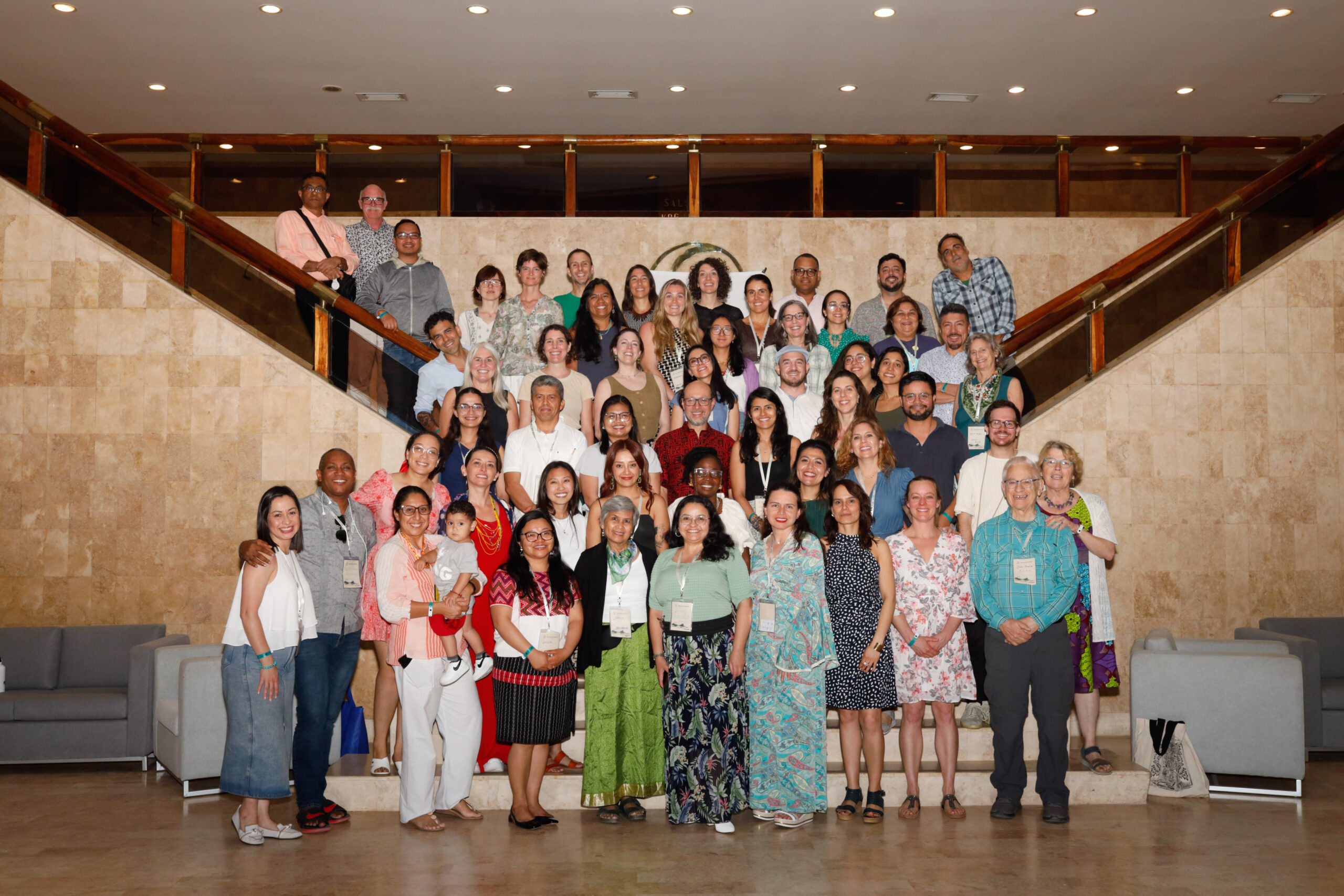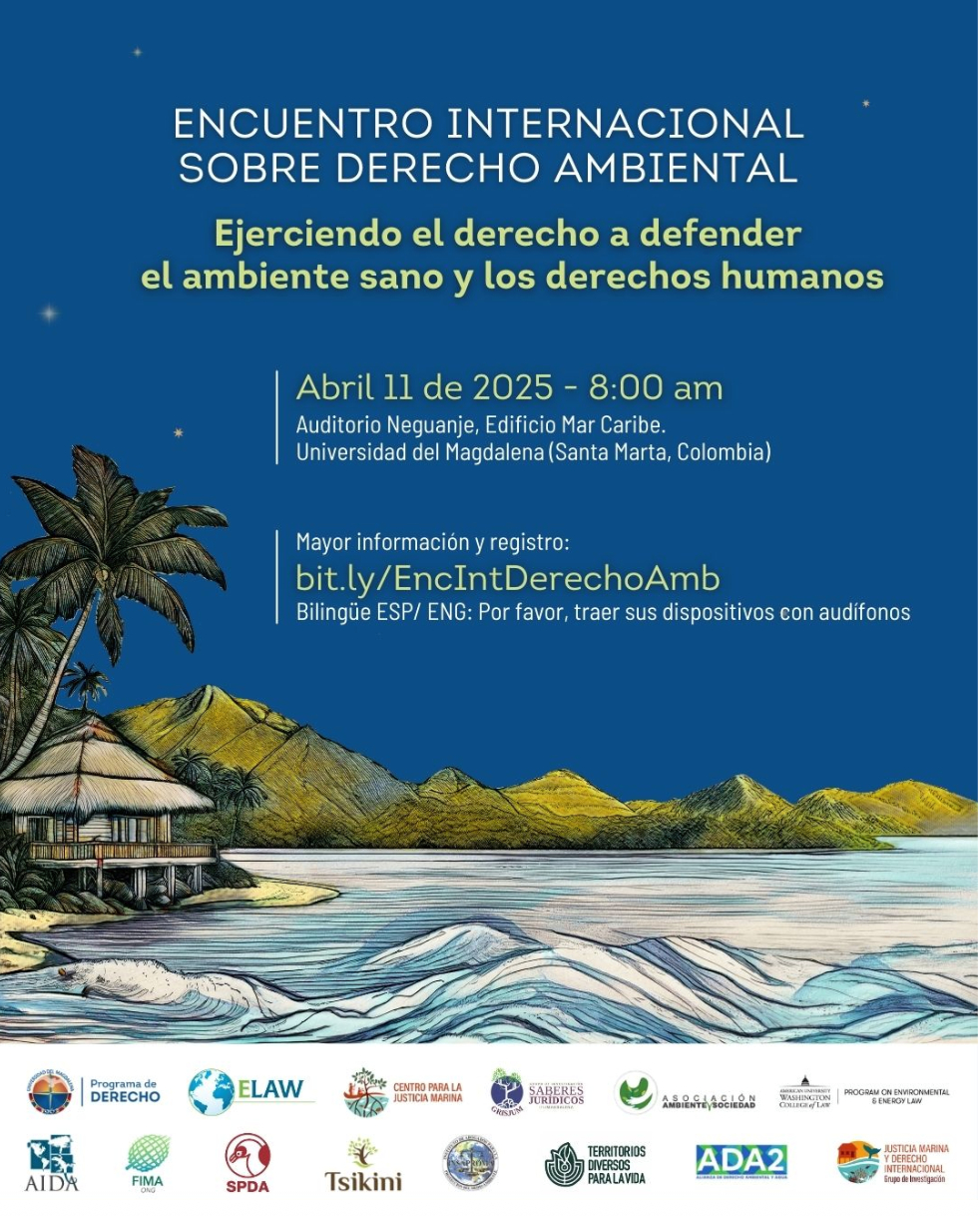Renewing Our Connections and Commitment – ELAW Annual Meeting in Colombia

More than 60 ELAW partners gathered last month in Santa Marta, Colombia, for the 2025 ELAW Annual Meeting, followed by the International Meeting on Environmental Law at the University of Magdalena.
This has been an awesome gathering of our community, and I leave with a renewed sense of purpose, thanks to you all and the powerful way you put your love into action on behalf of Earth’s life. Let’s continue walking together in this beautiful and tremendously challenging task that stirs our souls. I couldn’t imagine better companions for this journey.
-Ezio Costa Cordella, FIMA, Chile

Plenaries focused on:
- Confronting threats to environmental defenders
- Protecting the ocean
- Legal frameworks to support human rights and environmental defense
- Extractivism, climate change, and the just transition
- Digital security
Grassroots lawyers collaborated in working groups on many more topics, including biodiversity; rivers and dams; water quality; rights of Indigenous peoples; rights of nature; and deep-sea mining.
The Annual Meeting featured a case fair, which enabled participants to present several current cases in parallel. Small groups discussed each of the eight cases presented to learn more about the strategies and reflect on their own litigation.

During the International Meeting on Environmental Law, open to the public and held at the University of Magdalena, ELAW partners shared lessons from their experiences defending communities and ecosystems in Brazil, Chile, Colombia, Dominican Republic, Ecuador, Egypt, Mexico, Peru, Philippines, United States, Ukraine, and Uruguay.
Many thanks to the incredible Colombian hosts and co-organizers, including Ana Lucía Maya Aguirre, Melany Velasquez Lozano, and Yolanda Zamora Ayala at Centro para la Justicia Marina; Liliana Avila and María José González-Bernat at AIDA; Vanessa Torres at Asociación Ambiente y Sociedad; and Professor Isabela Figueroa at the University of Magdalena, for organizing such an inspiring meeting. And thanks to our amazing volunteers, Martine Coguiec and Madeleine Wendling, who provided support during the meeting!

Karen Guillory
Outreach Manager
Environmental Law Alliance Worldwide

